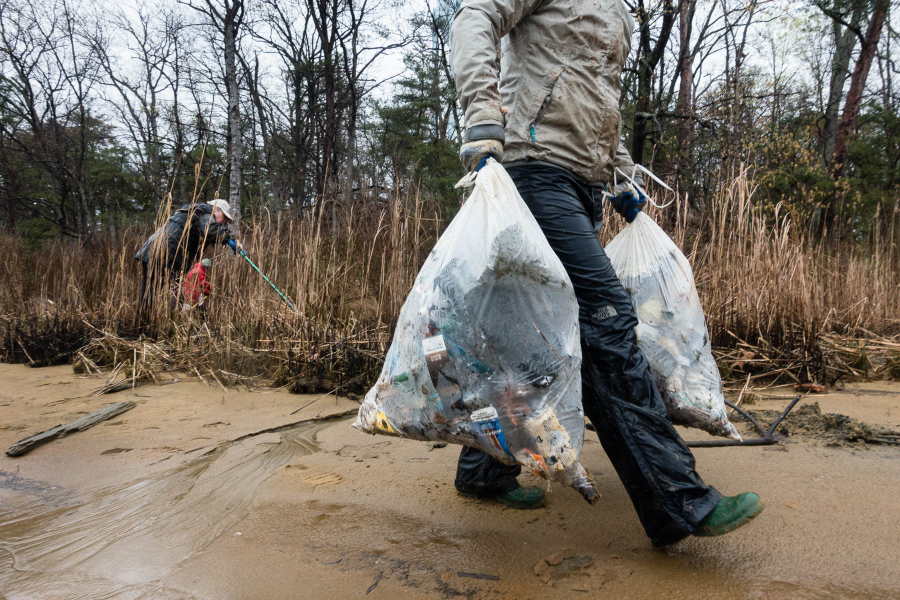Chesapeake litter meets its maker

If not properly recycled, an aluminum can takes 200 years to decompose, which is actually a short lifespan when compared to other types of litter. A plastic bottle, for example, can take 450 years to decompose, while fishing line can take 600 years and a glass bottle can take 1,000 to a million years. That doesn’t seem too fair to our great, great, great-grandchildren now does it?
Despite its extended shelf life, trash enters our lands and water at remarkable volumes. Left alone, the pollution threatens wildlife, contaminates drinking water and makes our forests, parks, streams and rivers difficult to enjoy. Because so much of it isn’t biodegradable, once trash has made its way to the land or water, there’s really no choice but to scoop it back out.
This is where organizations like the Alliance for the Chesapeake Bay come into play. For the past ten years, the nonprofit has led Project Clean Stream, a watershed-wide initiative to clean up our parks, forests, streams and rivers. What started as a single-day event is now a several-month-long run of cleanup events where Chesapeake residents, businesses and community groups are put to work removing litter.
Traditionally, Project Clean Stream has kicked off in the spring, but due to the COVID-19 pandemic, in 2020 it will move to the fall, kicking off on Friday, September 11 for the National Day of Service and Remembrance. Alliance staff will hold their own cleanup outside of their Annapolis, Maryland headquarters and several other events are planned throughout the weekend. Additional cleanups will be held through November and across the watershed, with Clean Virginia Waterways and Keep Pennsylvania Beautiful helping to organize events in their states.
To keep the events safe, the Alliance has instituted a number of precautions. No cleanup can exceed 25 people, masks are encouraged and everyone must stay six feet apart. The nonprofit will also provide gardening gloves paid for by MOM’s Organic Market, which volunteers can take home.
One primary goal of Project Clean Stream is to empower people to regularly keep their own neighborhoods clean. Events can be organized by “site captains” who coordinate their own cleanups with gloves and trash bags provided by the Alliance. This level of stewardship can have an enormous impact on the Bay and its tributaries. In 2019, 5,000 Project Clean Stream volunteers removed more than 200,000 pounds of trash from more than 660 cleanup sites.
This type of action can’t come a moment too soon. While the COVID-19 pandemic has lessened car and airplane pollution, it has actually worsened plastic pollution, due to an increase in use of masks and gloves, plus a decline in recycling programs.
Want to know how you can help? Visit the Project Clean Stream website to attend or lead a cleanup, and follow our best practices to reduce litter at home.

Comments
There are no comments.
Thank you!
Your comment has been received. Before it can be published, the comment will be reviewed by our team to ensure it adheres with our rules of engagement.
Back to recent stories